Aseem Chhabra looks at the year's best Non-Hindi Indian movies.
2018 was really good for the Indian film industry with a number of important films in Hindi and other regional languages.
My work as a film festival programmer and my passion for discovering new non-Hindi language works led me to a terrific lot of films -- some I watched and programmed, others I was able to see on my laptop and streaming services.
I also watched subtitled prints of regional films in multiplexes.
This list of 15 films covers different parts of India -- of course South India, where the best work is being done, to the eastern and the western centres of cinema.
Most of these films have already opened in theatres (almost all opened in 2018), while a few still await theatrical release.
1. Ee. Ma. Yao. (Malayalam)
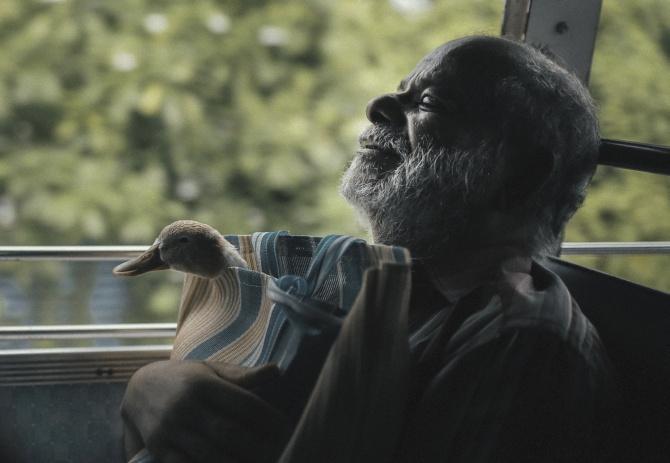
In the follow-up to his sleeper hit Angamaly Diaries, film-maker Lijo Jose Pellissery created a narrative set in a fishing village in Kerala -- with a large helping of humour and satire -- to explore the death of an elderly man, who collapses after having a little too much to drink.
But his death has a far reaching effect beyond his immediate family, to the neighbours, the rest of the village, the local priest, police, a nurse, a doctor and even the man's second wife and son, who show up at the funeral to create a huge scene.
Just like in Indian weddings, funerals too can take on a massive proportion with drama, scandals, gossips and a lot of loud crying. And Ee. Ma. Yao. almost celebrates this social event.
Beautifully shot -- the rain lashes out on the morning of the funeral when the drama accentuates -- Ee. Ma. Yao. (or R.I.P.) is a smart, delightful and very well crafted film.
2. Balekempa (Kannada)
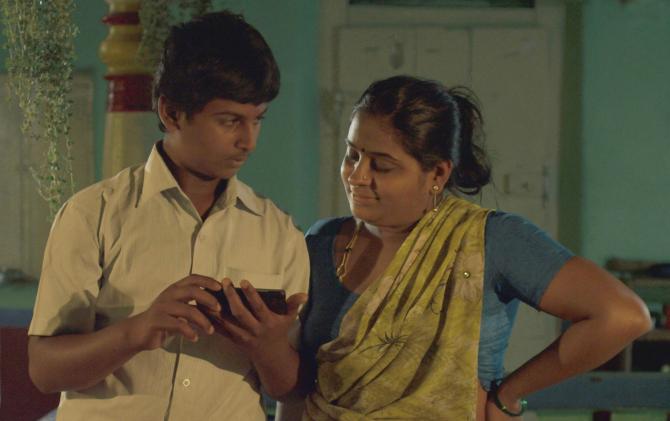
The #MeToo movement in India hit the indie film business in Karnataka when a young woman came up with shocking accusations against first-time film-maker, Ere Gowda.
Gowda has not responded to the charges against him, but his maiden film Balekempa has been affected, with film festivals in India pulling it out of their programmes.
But a film, unlike a painting, is the work of a large number of people.
The cast and crew of the film should not be punished for their hard work, just because the director made wrong decisions in his personal life.
Winner of the FIPRESCI prize at the Rotterdam International Film Festival, Balekempa (The Bangle Seller) is a quiet film with an engaging subject -- a bangle seller, who spends the days riding his bicycle and selling beauty products to women. He seems to have little time for his wife who longs to have a child.
In exploring the idea of sexuality and desire in a rural setting, Balekempa goes where few Indian films would attempt to do so. And that makes it one of the best Indian films of 2018.
3. Village Rockstars (Assamese)
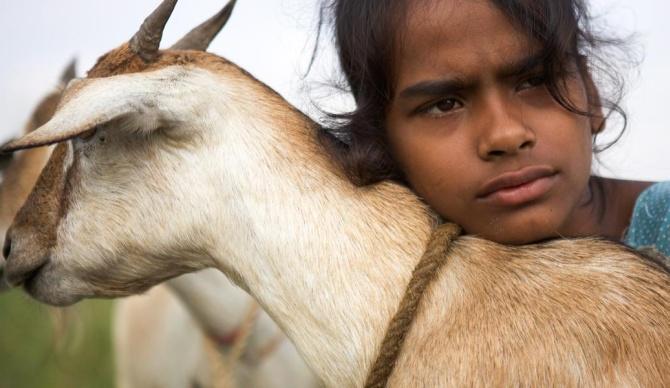
India's official entry for the foreign language race did not make it to the Oscars short list, but Rima Das's one-woman project (in addition to directing the film, she also shot and edited it) still needs to be celebrated for its remarkable attempt to portray the poetic life in a small village in Assam.
Village Rockstars is a beautiful visual experience.
Its simple narrative of a young girl, who wants to play a guitar, seduces the audiences with such charming heartfelt moments of kids hanging out, in the fields, on trees and in water.
Much of the film is shot in the magic hour when the sun glows in deep yellow and orange shades.
It is pure cinema, simple and honest that touches us deeply in the quietest possible way.
4. S Durga (Malayalam)
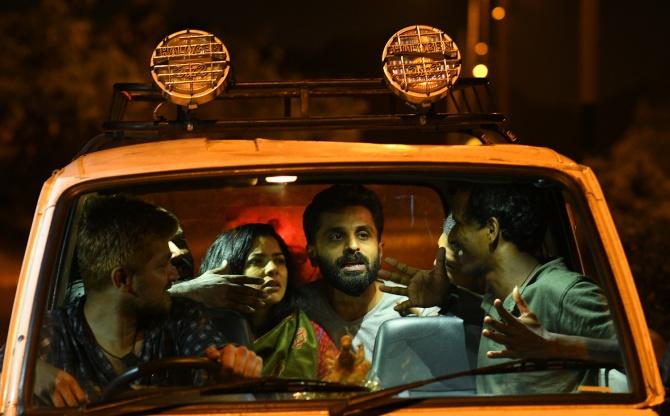
Sanal Kumar Sasidharan's third feature was cleverly titled Sexy Durga.
But it ran into major problems, like getting pulled out from the Indian Panorama at last year's International Film Festival of India in Goa. And the powers that objected to the film had not even seen it. They were simply turned off by the title.
Those who watched the film in its slightly censored version were stunned by its powerful story of a South Indian man, running away at night with his North Indian girlfriend, and the harrowing time they have along the way with the men who give them a ride.
A tightly made, although a disturbing film, S Durga has terrific performances by Rajshri Deshpande, Kanan Nair, and a range of supporting actors.
One of the best things about the film is its fluid camera movements in and out of the car that picks up the young couple.
Next year, Sasidharan will be back with Chola.
5. Vada Chennai (Tamil)
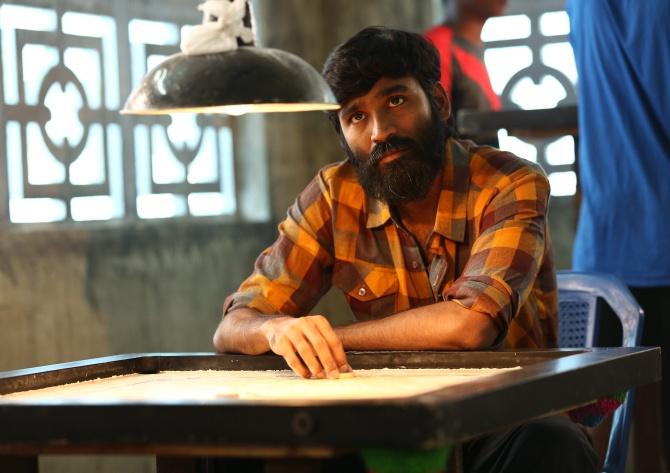
A sprawling epic, this ambitious film took a long time to make, as film-maker Vetrimaran was considering other actors until he settled with Dhanush, who co-produced it.
Anbu (Dhanush) wants to become a carrom board champion but he gets pulled into the world of crime, and with rival gangs run by two former friends.
Running at 164 minutes, Vada Chennai sometimes feels long, with a number of subplots.
But despite its vast range of actors, including fully defined supporting actors, it is a gripping thriller.
As expected from Vetrimaran, the film features some jaw-dropping fight scenes, the best of which appears just before the intermission.
As a carrom tournament is on under a tent in a jail, the rival gangs pull out knives, slashing enemies in slow-motion shots, against Santhosh Narayanan's haunting background score.
The stylised violence rarely seen in Indian films from other regions (other than perhaps recently in the Gangs of Wasseypur) makes Vada Chennai a marvel to watch.
6. Mahanati (Telugu)
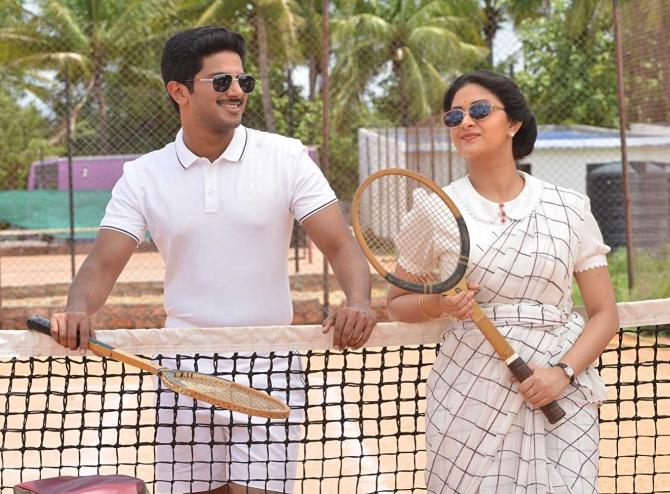
Mahanati is a three-hour long tragic biopic of Savitri (Keerthi Suresh), the star of Telugu cinema in the 1950s and 1960s, who also acted in Tamil, Malayalam, Kannada and even five Hindi films.
Savitri's life lends to over-the-top drama, and Mahanati is packed with melodrama, as her success was marred by a not-so-perfect marriage to Gemini Ganesan (played by a charming Dulquer Salmaan), who was already married and also had a mistress.
The music and romance between Ganesan and Savitri make Mahanati such a treat to watch.
Mahanati (a name given to Savitri) is a wonderful exploration of the two decades of the South Indian film industry.
It is Indian mainstream cinema at its best.
7. Bird in Dusk (Bengali/English)
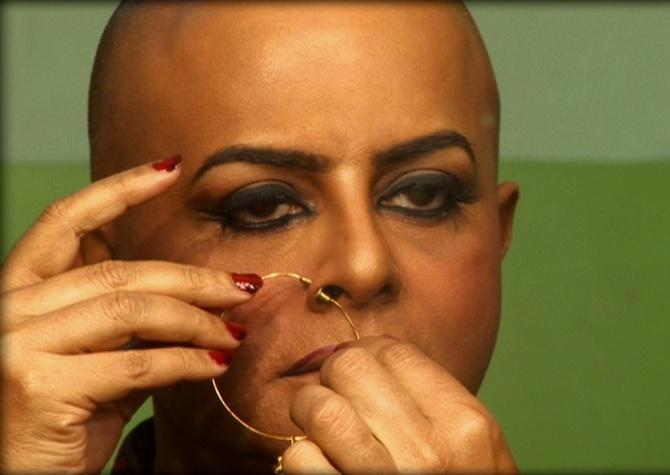
Bengali master Rituparno Ghosh's sudden death at 49 left a void in the Indian film industry.
One of India's finest film-makers, he was among the first directors from West Bengal to work with big Bollywood stars like Amitabh Bachchan, Aishwarya Rai, Preity Zinta, Arjun Rampal and Abhishek Bachchan, among others, making his brand of cinema accessible to larger parts of India.
Film-maker and scholar Sangeeta Datta's documentary Bird of Dusk is a moving portrayal of Ghosh, the director.
It also examines his personal life, his sexuality among other things.
It is a beautiful documentary, one that will definitely make the fans revisit Ghosh's films, but also hopefully many will discover him for the first time.
8. Pariyerum Perumal (Tamil)
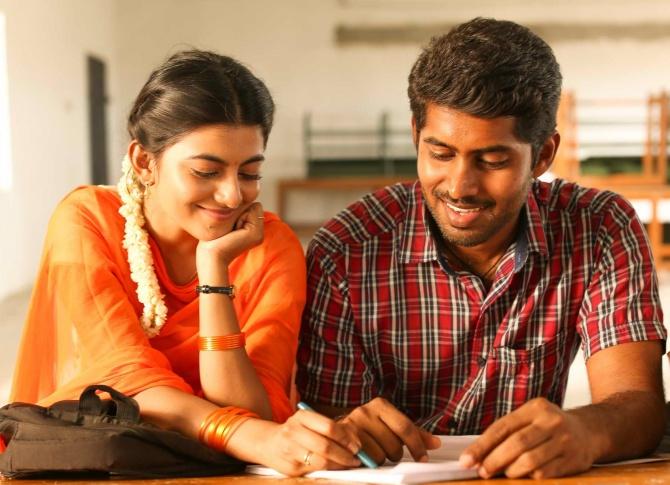
Inter-caste romances have been tackled for many decades by the Indian film industry.
In 2016, film-maker Nagraj Manjule made Sairat, a love story between a boy from a lower caste and a girl from an upper caste. Despite its devastating ending, the film grossed over Rs 100 crore and became the biggest all-time hit in Marathi cinema.
Director Mari Selvaraj's Pariyerum Perumal takes up a similar story about caste division in Tamil Nadu.
Pariyerum Perumal is about a a young man (Kathir) from a lower caste, with an obsession to become a lawyer so as to change the repressive condition in which he lives.
Along the way, Pariyerum makes friends with a classmate from an upper caste, Jothi (Anandi), who helps him improve his English and pass qualifying examinations. They eventually fall in love, much to the annoyance of her father and other male relatives.
At times, Pariyerum Perumal takes the predictable path. Yet, it is an important film.
Kathir's heartbreaking performance, plus a number of songs set to the score of Santhosh Narayanan like the ode to his dog Karuppi, makes this a must-watch film.
9. To-let (Tamil)
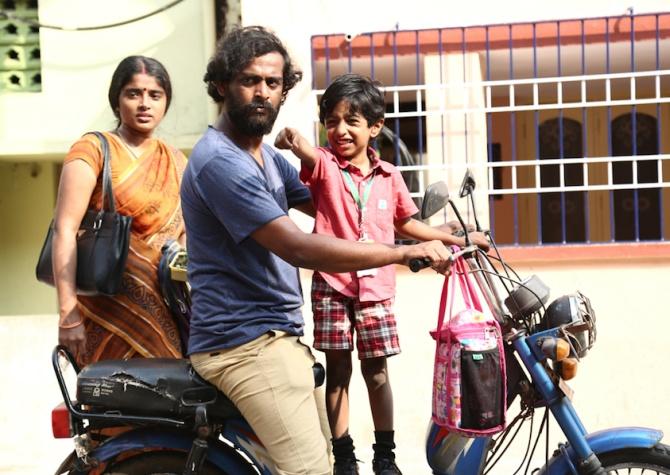
Winner of this year's National Film Award for the Best Tamil Film, To-let is an all too familiar story for anyone who has ever searched for an apartment in a big city in India. Things are even harsher for those who do not have the economic means to find better options.
To-let is the story of a young couple and their child living in a small room at the mercy of their landlord.
As Chennai experiences its IT boom, the landlord is able to find someone who can pay a higher rent.
The family is given a month to find an alternative accommodation.
A heart-wrenching film, director Chezhiyan Ra's To-let is a reminder of how difficult life can be in big cities for the marginalised.
It is a sad reality as the couple and their child traverse the city on their moped, racing against the one month deadline, while experiencing all sorts of prejudices that one would expect poor people to face.
10. Chumbak (Marathi)
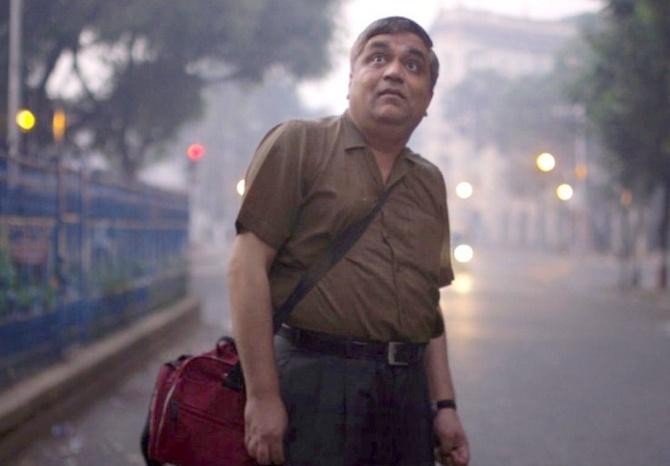
Sandeep Modi's charming film Chumbak follows the track of two teenage boys trying to save money, as one of them wants to contribute to a family food stand at a local bus stand.
A bad investment decision and the money is gone, which is when the teenagers come up a scheme to cheat innocent people.
The only person, who falls for the hair-brained scheme, is a mentally-challenged middle aged man, endearingly played by Swanand Kirkire.
The teens find it easy to cheat Kirkire's Prasanna, but then they are hit by a deep sense of guilt.
In the rest of the film, they set out to correct their actions.
Chumbak is a delightful film, but it also examines the moral compass within the teens and eventually sets them on the right path.
11. Juze (Konkani)
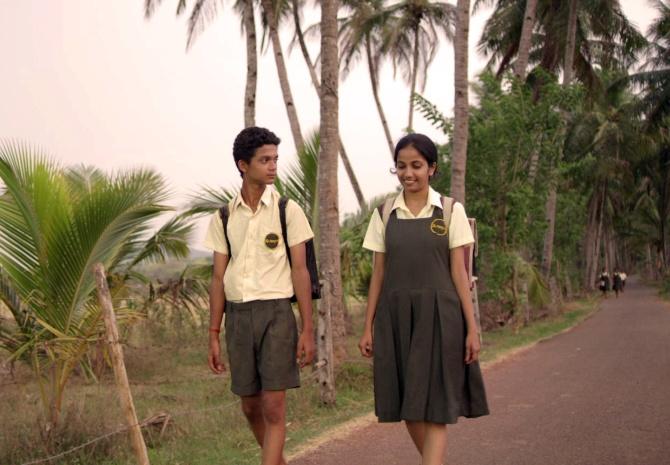
Goa-based film-maker Miransha Naik's first feature looks at the life of a teenager living on a property of a landlord, known as Juze, a violent man who mistreats his farm employees, while also sexually abusing the women who work with him.
Young Santosh (Rushikesh Naik) struggles to keep his head above the water as he pursues his education while trying to keep himself safe from the Juze's abuses.
Based on his memories of a Juze in his village, Naik has made a powerful film about class hierarchies in rural Goa.
Juze is also a hopeful reminder that those who misuse their power will eventually fall.
12. Mayurakshi (Bengali)
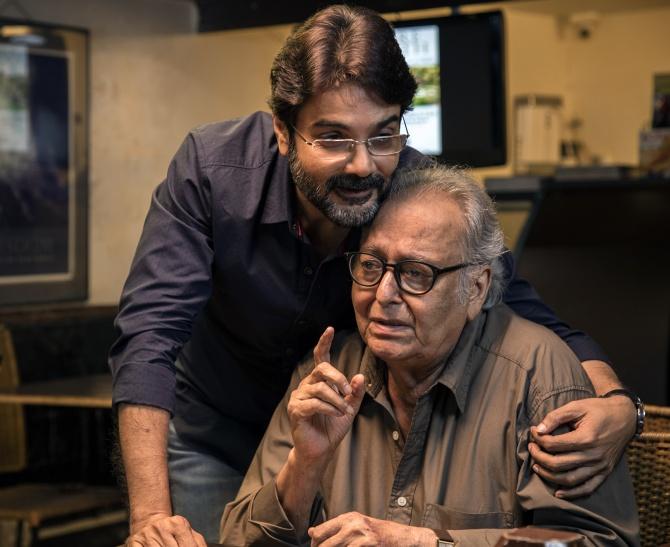
National Film Award winner for Best Bengali Film features two of Bengal's leading male actors: Veteran actor Soumitra Chatterjee and the relatively young heartthrob, Prasenjit Chatterjee.
In this devastating story about a father and son, Prasenjit's character Aryanil returns to India from the US to watch over his father Sushovan (played by Soumitra), who is suffering from dementia.
Aryanil has his own issues: Two failed marriages, a teenage son in a boarding school and the search for an elusive former student of his father, who was also a love interest at one time.
Director Atanu Ghosh creates a powerful drama, very real and moving.
Mayurakshi is a special film, and it will touch everyone, not just those who have had to deal with ailing parents.
13. Nude (Marathi)
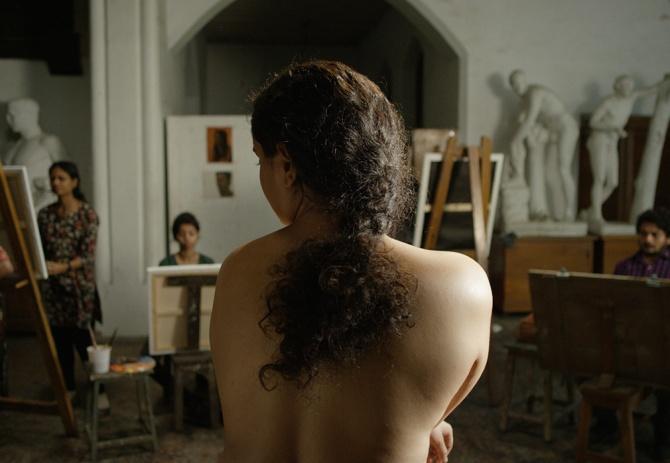
Like S Durga, Nude also ran into trouble at the 2017 International Film Festival of India in Goa because of its title.
After traveling to international film festivals, Nude was screened for the censors in India and surprisingly, they cleared it without a single cut.
A beautifully made film -- other than the over-the-top beginning and ending sections -- Nude tells the story about a rural woman, abandoned by her husband, who ends up becoming a nude model for art students in Mumbai.
The film explores the idea of art and also touches upon the rise of right-wing forces that drove a painter like M F Husain (Naseeruddin Shah, in a supporting role) out of India.
Director Ravi Jadhav's Nude should also be watched for the warm, nuanced performance by Kalyanee Mulay, playing the protagonist Yamuna.
Her struggles, her shame when she initially starts to model and her sense of pride when she is able to comprehend the true meaning of art is what this remarkable film should be remembered for.
14. Paddayi (Tulu)
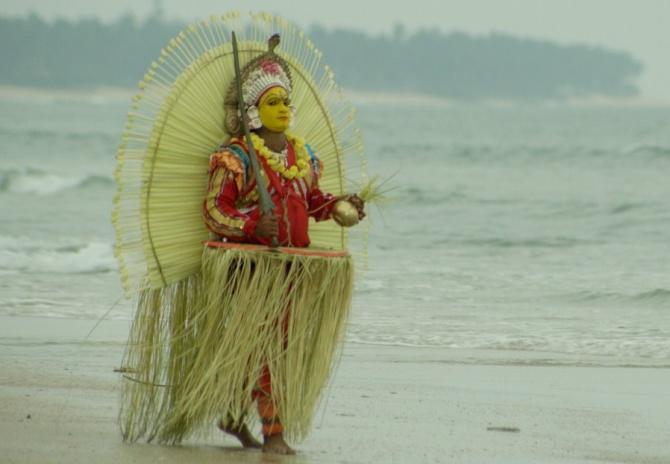
William Shakespeare's Macbeth had many treatments over the years, including Akira Kurosawa's Throne of Blood (1957), Roman Polanski's Macbeth (1971) and Vishal Bhardwaj's Maqbool (2003).
In Paddayi, Director Abhaya Simha takes the Macbeth tale to a fishing village in Karnataka.
Winner of the National Film Award for the Best Tulu Film, Paddayi examines the plight of local fishermen, who struggle against the power and greed of the owners of big trawler fishing vessels.
In the midst of it, Paddayi traces the rise (and later, fall) of Madhava (Mohan Sheni) and his ambitious wife Sugandhi (a wonderful seductive Bindu Raxidi, playing Lady Macbeth).
Gripping and well acted, this original and rare take of Macbeth is definitely worth a watch.
15. Light in the Room (Malayalam)
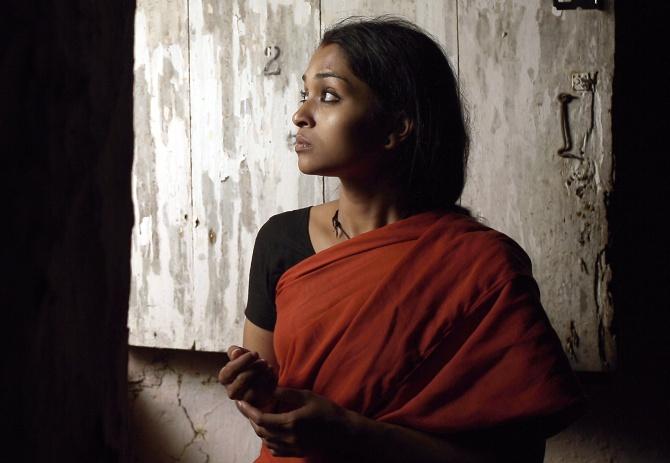
First-time film-maker Rahul Nair's Light in the Room swept the Kerala state film awards earlier this year.
It is a powerful, and at times tough, film to watch, since it deals with domestic violence. There are some harrowing scenes of a crazy husband physically abusing his new wife.
Nair also places his characters in a remote mountainous part of Kerala, with breathtaking views.
The natural beauty of the film's setting, placed against disturbing moments of domestic violence makes film even more compelling.
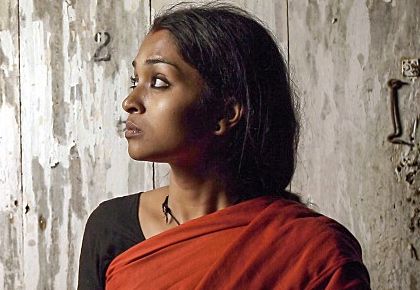










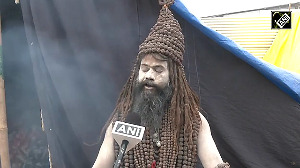
 © 2025 Rediff.com -
© 2025 Rediff.com -